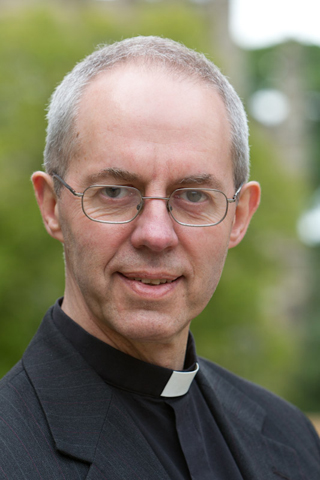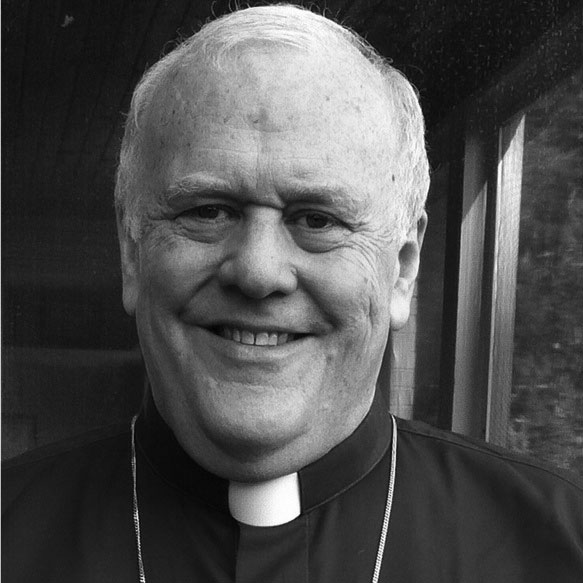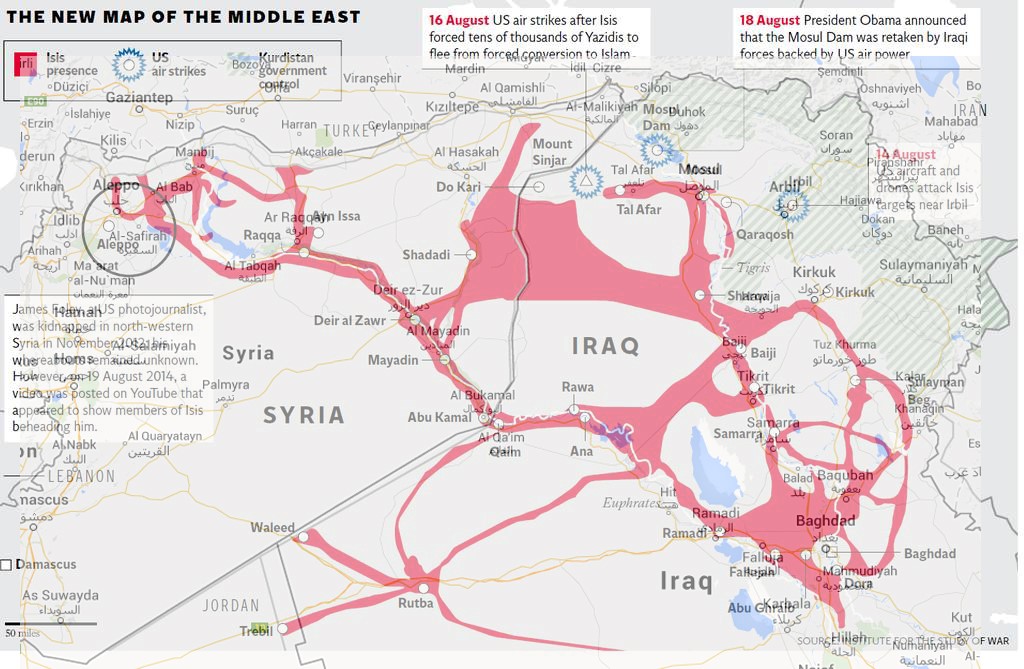Not everything claiming to be benign actually is…
This week, I’d like to share about two areas where the Gospel is particularly under assault.
The first is in the Church. There is nowhere in the Church where there is more vulnerability for the Gospel to be undermined than in the Anglican Communion. Certainly, there are other churches and denominations where the historic faith has been more fully and formally abandoned by the official decisions of institutional leadership, but the current vulnerability in the Anglican Communion is that the historic faith and Gospel commitment which has driven missionary zeal and Biblical fidelity for centuries is being de-emphasized in order to “get along.”
Right now, there are countless initiatives at the institutional level to attempt to convince people that the “cut-glass crystal punch bowl” is so beautiful that when it is polished, preserved, and appreciated the recipe of the punch it contains is unimportant. The challenge, however, is how much adulteration to the punch is acceptable. I addressed the House of Bishops in one of our Anglican Provinces and pointed out that the soup that was being made (to switch metaphors) has lovely carrots, beautiful potatoes, succulent chicken, and tasty broth. “How much manure can be added to the soup before you no longer can consume it and stay healthy?” I asked them. Not surprisingly, they did not want to have any manure added to the soup, and yet, quite a number of them were participating in conferences sponsored by liberal entities that completely undermined the Gospel, replacing it with institutional focus and uncritical acceptance of sin.
While I was tremendously excited at the selection of Justin Welby as the Archbishop of Canterbury, and had hoped and prayed for his selection believing that he was the best of the available candidates, I have been concerned at what appears to be a perspective that everything can be reconciled with everything else. While most relational disruptions can be reconciled, theological positions are another matter. It is impossible, for example, for the position “Jesus is Lord of all” to be reconciled with “Jesus is not Lord of all.” While theological disagreements may not seem to be that stark, it is precisely that revelation that is at stake in the Anglican Communion. The Lordship of Jesus Christ as revealed in Scripture, and how He viewed Scriptural authority is very much in play.
While it is admirable to have loving welcomes for all people, everyone needs to be welcomed to come into a relationship with the Savior. The current plan by senior leaders in the Church of England to bless relationships of same-sex sexual intimacy may seem to be a wonderful welcome so that people can then later be won to Christ, but what is the character of the Christ that is being presented? When Jesus validated Scriptural authority (every jot and tittle), He certainly could have excepted some things of moral law had He chosen to do so, but He did not. He certainly dismantled tenets of the ceremonial law. He could have made changes to moral law as well. Instead, He called us to a higher standard. Same-sex sexual intimacy is proscribed by Scripture because it is incompatible with Godly living. The spiritual and physical health consequences are terrible. Sadly, virtually everyone overlooks the truth that there are Biblically proscribed behaviors that have devastating consequences to people’s bodies—as well as to their souls and spirits.

I heard with my own ears Archbishop Welby describe the plan to allow for blessing of some same-sex relationships while “holding the line against same-sex marriage.” That is no comfort. In a marriage, the Church does not “marry” the people. The people marry each other. In fact, the bride and groom are the ministers of the sacrament. The role of the priest is to evaluate the circumstances of the union and if it conforms to the teaching of the church, pronounce blessing over the union. Pronouncing a blessing over that which God does not bless is no blessing at all. It is a fantasy that leaves people on a dangerous path spiritually and even physically. The Archbishop is in many, many, respects a wonderful man. On this point, I believe he is tragically wrong.
What we need to do is recapture the majesty of the Gospel. Rightly lived and proclaimed, it should offer a lavish welcome to sinners, because that’s what we all are. The Gospel then embraces us for Christ’s sake so magnificently that we are fundamentally changed. We actually get a new nature and begin to be able to become like Him who saves us. We are not “stuck” with the way we were. Our new horizons are the horizons of Jesus. What is possible for us is what He deems possible. It is to His values and horizons that He draws us. Granted we have far to go, but we cannot proceed while shackled in a false, ungodly belief that thinks we get to choose which part of our lives to submit to Christ. The fallacy that we get to decide what is good and what is evil is not only the same mistake that wrecked things in the Garden, it still burdens lives and robs freedom, leaving people stuck in “less than” lives. We should love them better. The dialogue that is being promoted and advanced among Anglicans is not an honest one. The “Continuing Indaba” project is an utterly corrupt process of manipulation designed only to advance the liberal agenda. That kind of conversation can never bear godly fruit. We need a different kind of conversation where the Gospel can be plainly, lovingly, and powerfully demonstrated and then spoken about. Only then can there be resolution.
The second great vulnerability is in our lack of engagement with Islam.
Wake up and smell the sulphur…
Look at this recent map of the holdings of ISIS (also known as ISIL).
The “Islamic State” group(s) want to establish a stateless caliphate in which Sharia Law rules. Qānūn-e Islāmī (قانون اسلامی ), Islamic law, means “the moral code,” but it would be better understood to be an Islamic worldview imposed everywhere. Remember that “Islam” means “submission.” That is the heart difference between Islam and the Christian faith. When we come to Christ, He sets us free. In Islam, the law is imposed upon us. The militants who are advancing militarily believe that states need to be toppled and people need to:
(1) convert to Islam,
(2) pay dhimmi-unbeliever’s tax (which is crushing second class citizenship),
(3) Flee, or
(4) die.
That is what they are imposing on the Yazidi and Christians in the Mosul area, and will, everywhere they get the chance.
The gravity and strategic significance of the map above is revealed when one overlays the road system of Iraq on it. Notice how virtually every road is dominated by ISIS troops. These are not just the major roads, in most cases they are the only roads. That means that they can completely control the area if they can control the ground transportation, especially in the absence of US air power.
Apart from the Ramadi-Rutba Road, all of northern Iraq is under ISIS control, save Kurdistan. A tiny number of troops are utterly controlling vast areas of territory, and inflicting horrible violence on the population. This absolutely requires a strategic response. Not only must we respond in this location, we need to engage with Islam in other areas as well.
Not too long ago, I had the opportunity to meet with one of the very top Islamic leaders in another nation. He was quite engaging and our conversation had a lot of favor on it. Things went so well, that we decided to proceed from our meeting to lunch. Much to the amazement of the “aides” who were along, I took the opportunity to respond to what I believed to be an inner prompting of the Holy Spirit (please note, I am not advocating adopting this as a wholesale strategy for Islamic engagement. I believe, though, that it was the right thing for this time.)
I was not sure where things would lead when I said to him, “Most of the time, all our interfaith conversations are limited to topics around which we can find agreement. Things like weather and superficial topics. Would you like to invest our lunch-time conversation in identifying the areas about which we completely disagree?”
He replied, “Yes,” that it would be an “interesting conversation.”
We went on to discuss the central difference of the understanding of who Jesus is. He came from the perspective of Jesus being a holy prophet. I came from the orthodox position that He is God and man—two natures in one person––fully God and fully man. The conversation was lively and quite animated, but very congenial. Neither was really expecting to change the mind of the other. Eventually the conversation took an interesting turn. To this point we had communicated well with good will. Even though there was disagreement, we were developing friendship. We had talked about the extremists with whom he had to deal, and I was able to speak sincerely about some Christians who say and do things that are not helpful. With the relational equity that was developing, we were able to even talk about atonement—the concept of how we who are separated from God by sin can be “at-one” with Him.
I have found that a wonderful way to engage in cross-cultural conversation is to ask a question, but it must be one genuinely framed. I said, “Could I ask something about atonement – how we become one with God—or you may say ‘closer to God?”
He replied, “Yes, of course.”
I asked, “For Christians, we become one with God through the sacrifice of Jesus on the Cross. In keeping with the sacrificial system of the Pentateuch (which Muslims accept to be authoritative), Jesus Christ, Who is both God and sinless man, freely offered Himself as a sacrifice fulfilling the demands of the Old Testament sacrificial system, pouring his life-blood into our curse of separation and death so that we can be restored to intimacy with God the Father from whom we have been estranged. Isn’t there a parallel with radical Muslims who believe that they must shed their own blood in order to inherit Paradise? Aren’t they relying on shed blood, too?”
“Yes,” he said. “Though many of us would not agree with them. Some, perhaps many, are doing that.”
“Would that blood sacrifice be sufficient to bring a person into intimacy with God as Father?” I asked.
“We would not think in those terms—Paradise for us is different from that,” he replied.
“What if God Himself were to shed His own blood? What could that win? What could that produce?” I asked.
“I will have to think on that,” he said. “Perhaps for another conversation.”
Please understand, I am NOT suggesting such a line of conversation with Muslims you might meet. I do think that we must engage Muslims with meaningful dialogue. We have been so disappointed with the fruit (or lack of it) from dialogue in our own tribe, we may well be hesitant to engage in it with Muslims. We must rethink that. At least some of us need to become equipped to have those conversations. All of us need to be mobilized to pray as a matter of urgency that the Lord will anoint substantive conversations. I firmly believe that when the Gospel is given a level playing field in conversation and life experience, it will win the day.
Archbishop Foley Beach of the Anglican Church in North America has called us to pray diligently for the situation in Iraq and Syria and other places where Christians are under assault from radical Islam. To fail to do so will be devastating for the Christians who live in those regions. It will also be at our own peril. If not stopped now, it will march until it is next door. Now, in addition to looking for the right places for conversation with Muslims, I pray for my new friend. I also pray that the risen and ascended Lord Jesus Christ will visit him in his dreams and experiences. I can hardly wait until we get to speak again.
August 26, 2014
The Rt. Rev. Bill Atwood is Bishop an American Anglican Council contributing author and Bishop of the Anglican Church in North America’s International Diocese.




